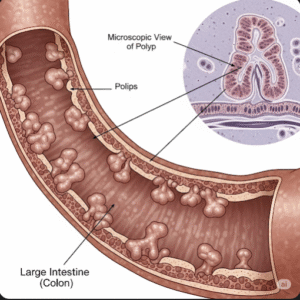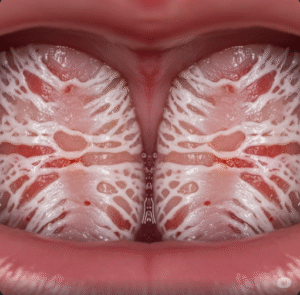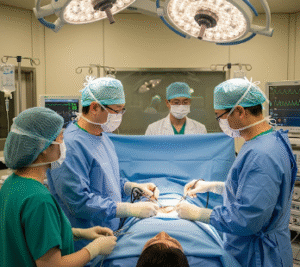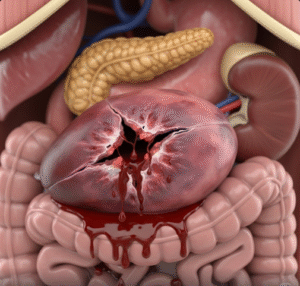Overview
Cystic Fibrosis (CF) is a genetic disorder that primarily affects the lungs, pancreas, liver, and intestines. It causes thick, sticky mucus production, leading to recurrent respiratory infections, digestive problems, and reduced nutrient absorption. While CF is rare in East Asia, including Korea, specialized care is available for diagnosis and management, improving quality of life and life expectancy.
What is Cystic Fibrosis?
Cystic Fibrosis is caused by mutations in the CFTR gene, which regulates salt and water transport in cells. Dysfunction of CFTR results in thickened secretions, especially in the respiratory and digestive systems. These secretions can obstruct airways and ducts, causing chronic infections, inflammation, and organ damage.
Symptoms
Symptoms often appear in early childhood, though onset can vary:
Respiratory System:
- Persistent cough with thick mucus
- Frequent lung infections (bronchitis, pneumonia)
- Wheezing or shortness of breath
Digestive System:
- Poor weight gain and growth despite normal appetite
- Fatty, bulky stools (steatorrhea)
- Pancreatic insufficiency leading to malabsorption of nutrients
Other Signs:
- Salty-tasting skin
- Infertility in males due to congenital absence of the vas deferens
- Liver disease in some cases
Causes
- Genetic mutations in the CFTR gene (autosomal recessive inheritance)
- Both parents must carry a defective gene for a child to be affected
Risk Factors
- Family history of CF
- Caucasian ethnicity has the highest prevalence, but cases are rare in Korea
- Consanguinity increases the risk of inheriting defective genes
Complications
- Chronic lung infections and bronchiectasis
- Respiratory failure in advanced cases
- Malnutrition and vitamin deficiencies
- Diabetes due to pancreatic damage
- Liver disease and cirrhosis
Prevention
- Genetic counseling for at-risk couples
- Prenatal testing for families with a history of CF
- Early detection and regular medical monitoring
Treatment Options in Korea
South Korea offers specialized care for CF, including advanced diagnostics, multidisciplinary management, and supportive therapies:
- Diagnosis
- Sweat chloride test to measure salt levels
- Genetic testing to identify CFTR mutations
- Pulmonary function tests
- Imaging (chest X-ray, CT scan) for lung assessment
- Medication
- CFTR modulators (if specific mutations are present)
- Antibiotics for bacterial infections
- Mucolytics (e.g., dornase alfa) to thin mucus
- Bronchodilators to open airways
- Pancreatic enzyme replacement therapy for digestion
- Respiratory Therapy
- Airway clearance techniques (physiotherapy, devices)
- Regular monitoring for lung infections
- Vaccinations to prevent respiratory illnesses
- Nutritional Support
- High-calorie diet to maintain weight
- Vitamin supplementation (A, D, E, K)
- Monitoring growth and nutrient absorption













